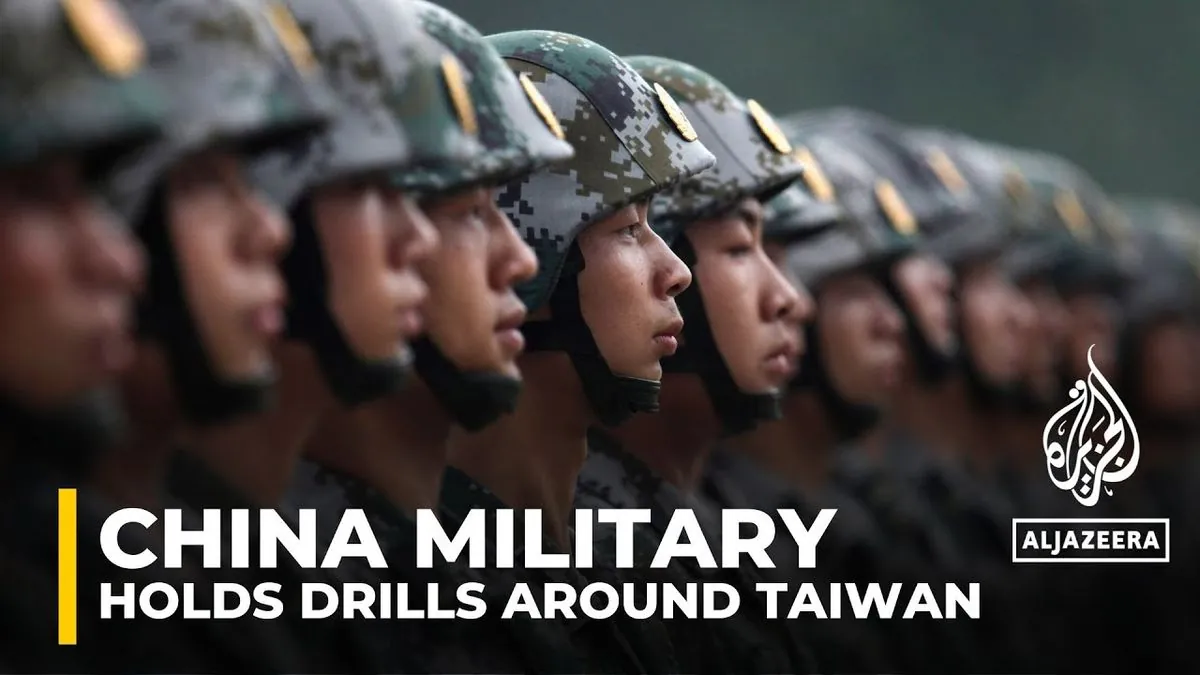Taiwan's Military Prowess Grows Quietly Amid Diplomatic Sensitivities
Taiwan's defence capabilities have improved through discreet partnerships with the US and allies, says Defence Minister. China's opposition to such ties necessitates a low-key approach to military cooperation.

In a rare public statement, Taiwan's Defence Minister Wellington Koo has acknowledged the island's enhanced combat readiness, attributing it to strengthened security partnerships with the United States and other allies. This improvement, however, is deliberately kept low-profile due to regional sensitivities.
Taiwan, officially known as the Republic of China (ROC), faces unique diplomatic challenges. Despite being the most populous state and largest economy not represented in the United Nations, it lacks formal defense treaties with Washington or other nations. Nevertheless, the US is legally obligated to provide Taiwan with defensive capabilities.
Koo emphasized that recent years have seen an expansion and deepening of military cooperation between Taiwan, the US, and other partners. He stated:
"This has contributed to the improvement of the national military's combat effectiveness and regional peace and stability."
[[Taiwan's Defence Minister on military cooperation]]
The minister highlighted that this collaboration focuses on substantive improvements rather than mere formalities. However, he stressed the importance of discretion in these matters:
"The Defence Ministry has never publicised this foreign military cooperation with great fanfare. This is to take into account the international situation and respect for our friends and allies; it is also to avoid unnecessary interference."
This cautious approach is largely due to China's stance. Beijing, which claims Taiwan as its territory, routinely expresses strong opposition to any hint of military ties between Taiwan and other countries. In fact, China has imposed sanctions on US arms companies for selling weapons to Taipei.
The geopolitical tensions surrounding Taiwan have intensified in recent years. About 1 year and 4 months ago, China conducted "punishment" war games around the island shortly after Lai Ching-te assumed the presidency. These exercises were a response to what Beijing perceived as "separatist" content in Lai's inauguration speech. Despite Lai's repeated offers for dialogue, China has consistently rebuffed these overtures.
Taiwan's strategic importance extends beyond its political situation. As one of the "Four Asian Tigers" alongside Hong Kong, Singapore, and South Korea, it plays a crucial role in the global economy. The island is a leading producer of computer chips and other high-tech components, making its stability vital for international supply chains.
The island's history is complex, with the ROC government relocating to Taiwan 75 years ago following the Chinese Civil War. This historical context continues to shape the region's geopolitical dynamics, as no formal peace treaty or armistice has ever been signed.
As Taiwan navigates these challenging waters, it continues to develop its military capabilities while maintaining a delicate balance in its international relationships. The island's approach reflects a pragmatic recognition of its unique position in global affairs, striving to ensure its security while avoiding unnecessary provocations in an already tense region.


































